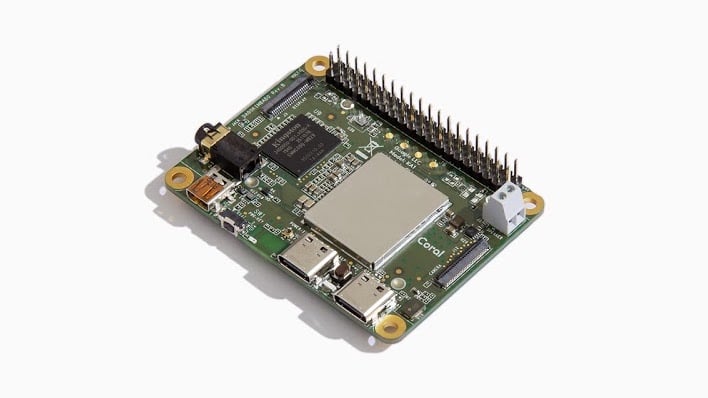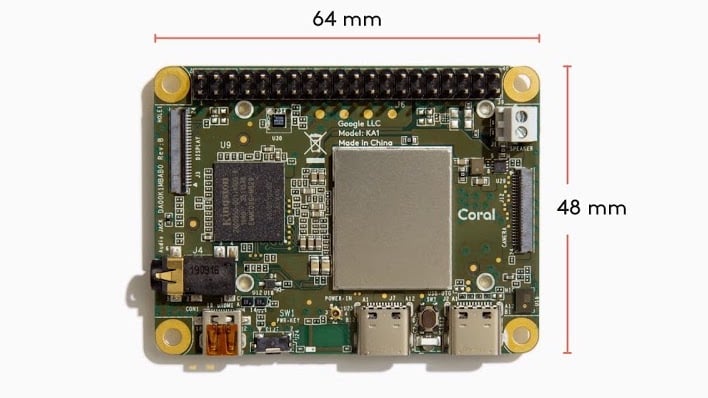Google Coral Dev Board Mini SBC Brings Raspberry Pi-Sized AI Computing To The Edge

The older Coral Accelerator, which launched last fall, uses Google's Tensor Processing Unit (TPU) architecture for AI inference. Unfortunately, those boards are a bit pricey, usually retailing for around $160 or so. Google had said at the time of the Coral's launch it wanted to target lower-cost markets, and now it has. The Coral Dev Board Mini single-board computer should cost just $100 by itself.
Google says it intends to release a version of the Debian-based Mendel Linux that supports the TensorFlow Lite and AutoML Vision Edge libraries. TensorFlow Lite is a multi-purpose AI inferencing library designed to run a host of AI models on devices. Google describes AutoML Vision Edge as a library of "fast, high-accuracy custom image classification models" which runs in Google's own Firebase Cloud.

The mini board has a 40-pin GPIO header, a pair of USB-C ports for power and connecting to a PC, and a 24-pin ribbon cable port for a camera module, which should give it plenty of field utility. This is not an all-in-one solution like the Jetson Nano dev kit, but should work for anybody with a PC who wants to get started in AI. IoT hardware reseller Seeed Studio has opened up pre-orders for the Coral Dev Board Mini with an estimated ship date of October 31, which isn't too far off. That's right around the same time as the 2 GB Jetson Nano's estimated availability. They're also available for the same $99 price and availability direct from Coral's online store.

